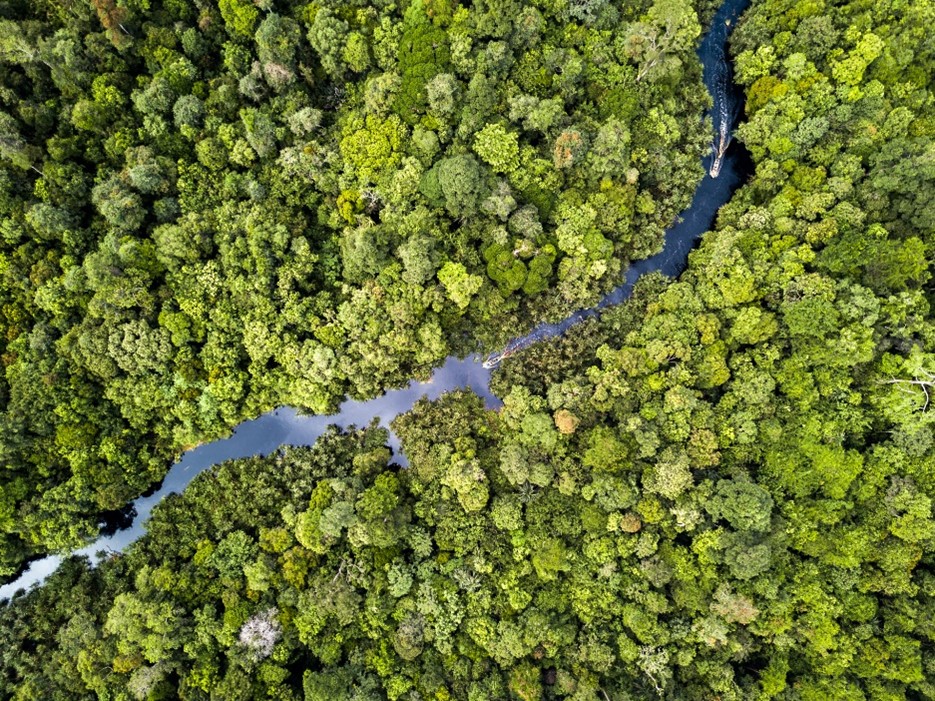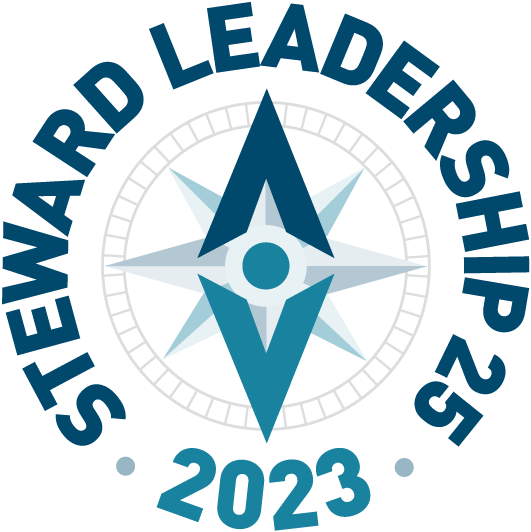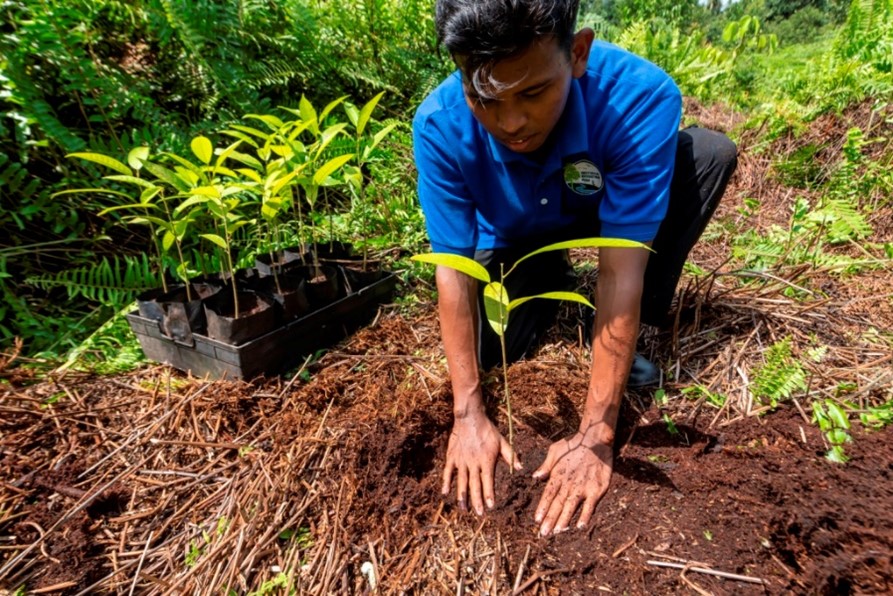Restorasi Ekosistem Riau (RER), a nature-based solution resulting from private sector leadership, sustained investment and partnerships.
When RER was established a decade ago, the term “nature-based solutions” was still emerging as a concept. Today, RER stands as a replicable example of exactly that. Spanning an area twice the size of Singapore, RER encompasses 150,693 hectares of tropical peat swamp forest on the Kampar Peninsula of Riau Province, Indonesia.
Funded and managed by APRIL Group and our partners and integrated alongside our production forestry operations, RER was established in 2013 following the issue of 60-year restoration licences by the government of Indonesia. The restoration licenses converted forestry concession areas that had been degraded over many years through canal construction and selective logging into one of Southeast Asia's largest tropical peat swamp conservation and restoration projects.
A production-protection approach
To contribute to the global imperatives of limiting global temperature increases to 1.5 C and achieving the Sustainable Development Goals by 2030, we recognise that we need to take bold action. As a leading provider of fibre, pulp and paper, APRIL has developed an approach we call "production-protection," where our commercial plantations provide not only a protective ring or physical barrier but also financial, technical and operational resources for conservation and restoration forest areas such as RER. This is part of our wider stewardship efforts under our APRIL2030 commitments to have more positive impacts on climate, nature and people.
Under our production-protection model, we will conserve one hectare of forest for every hectare of plantation forest, and we are currently 80% of the way towards our target. In other words, we are committed to ensuring that nature gets half of the landscape where we operate.

Aerial view of Serkap River in RER landscape. Credit: Caine Delacy
APRIL’s production-protection activity generates financial and technical resources to advance our restoration efforts, where USD1 for every ton of fibre produced from our commercial plantations goes to funding conservation and restoration. Since 2020, that has resulted in USD47 million in investment, which has been used for a number of conservation initiatives including RER.
Delivering positive impact for nature, climate and people
RER’s significance is reflected in the diverse fauna and flora it supports. Our most recent survey data gathered by field teams revealed that the RER is home to 846 plant and animal species. This tally includes 78 mammal species, including five of Sumatra’s six cat species, among them the critically endangered Sumatran Tiger and the endangered Flat-headed Cat. The species count also includes 317 bird species, 106 species of herpetofauna, and 198 species of plants.
In 2020, the RER ecology team published a peer-reviewed article in the conservation journal Oryx on the presence of the Flat-headed Cat (Prionailurus planiceps) on the Kampar Peninsula, the first record of its kind. In the same year, RER was selected as the release site for a rehabilitated female tiger named Corina. Through field cameras, last year, the RER team obtained the first visual sighting of Corina since release, who was looking healthy and active.
RER implements a range of forest and hydrology restoration efforts to bring the ecosystem back to its natural balance. Annually, RER restores around 8,800 hectares of forests. The team has closed more than 230 km of old drainage canals to date, positively impacting around 15,000 hectares of forest. RER also demonstrates how forest restoration can result in massive carbon emissions avoidance, which has been scientifically measured and verified.
Over the past decade, RER has provided a vital platform for advancing science in tropical peat swamp landscapes. We established an eco-research camp in 2021, which serves as a tropical peatland science hub facility for local and international researchers. The eco-camp has hosted several research teams, such as research teams from the National University of Singapore, University of British Columbia and University of Kent, and scientists from across Indonesia.
Since its inception, RER has demonstrated that ecosystem restoration, sustainable forestry, and community engagement can operate in a balanced integration to effectively contribute to Indonesia’s climate goals. This shows what can be achieved through a combination of committed leadership, sustained investment, partnership and collaboration at the government, scientific and community levels.
While RER will continue to be restored and strengthened at its own delicate pace, it is our hope that the success of RER will provide a model that will encourage others to invest in nature-based solutions to achieve national and global goals for climate, nature and people.

APRIL Group is a leading producer of bio-based fibre products, with forestry plantations and manufacturing operations in Sumatra, Indonesia. We are determined to ensure the next decade is one of action and further transformation for our company as we play our part in making a positive impact on climate, nature and people through our APRIL2030 commitments and targets. For more information, please visit www.aprilasia.com and follow our Instagram @discoverAPRIL.
Learn more about APRIL International Enterprise through their website. To collaborate or connect, reach out directly to our SL25 team.
Connect














